CDC Begins Third Year of COVID-19 Response with Goal of Increasing Global Vaccination
Summary
- CDC global health experts have worked tirelessly with partners and public health officials in more than 60 countries since the COVID-19 pandemic was declared in March 2020.
- CDC offers technical support that is coordinated with other U.S. government agencies and international partners, including multilateral organizations.
- CDC strengthens the ability of countries to prevent, detect, and respond to local COVID-19 cases, and supports collection of timely and accurate data to inform public health decision-making.
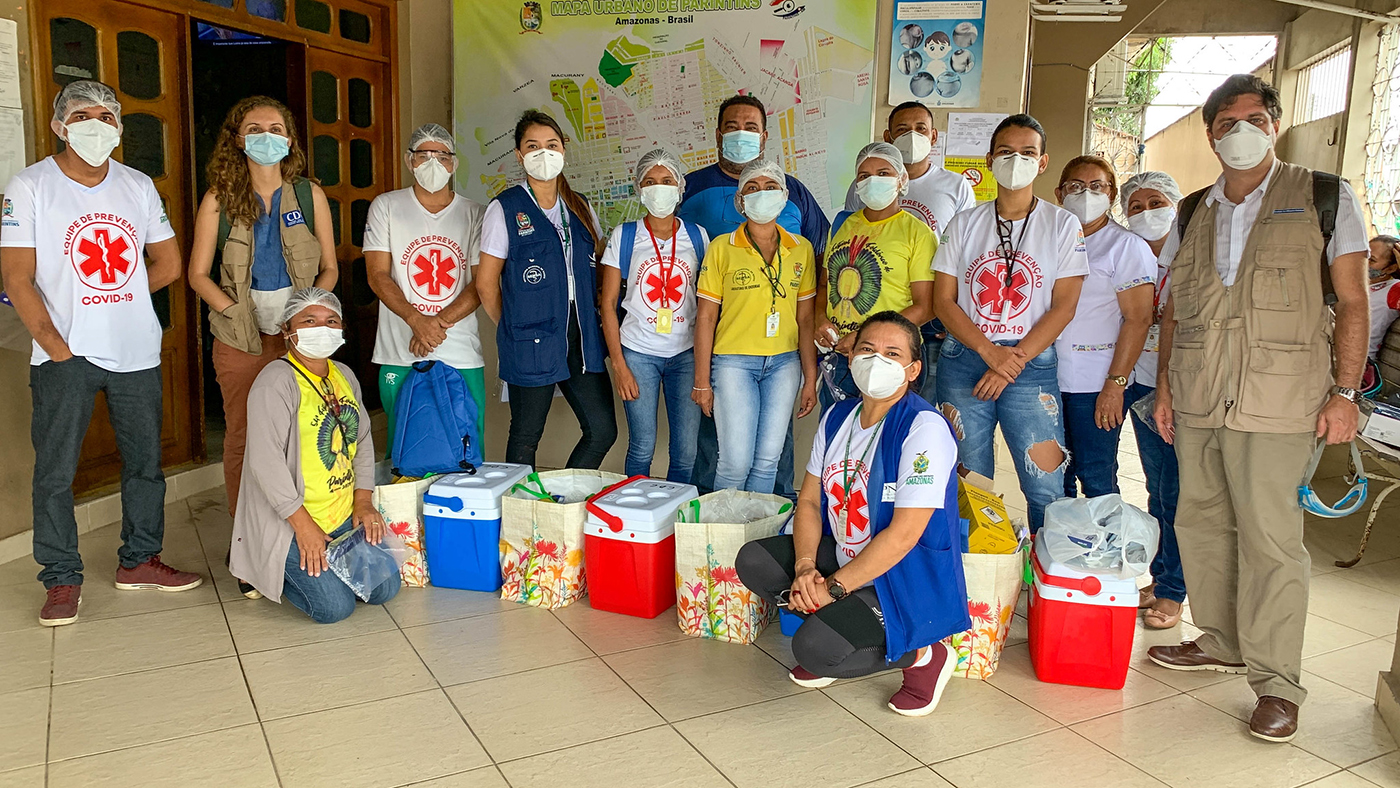
CDC experts went to Brazil in February 2021 to investigate the second COVID-19 wave. CDC epidemiologists and local health department staff gather in Parintins, Brazil, before going house to house to interview residents and offer free COVID-19 tests. Photo by Juliana de Fatima da Silva/CDC.
It’s been more than two years since COVID-19 disrupted life around the world. More than 422 million people have been infected and more than 6 million have died worldwide. Since the pandemic started, experts from the U.S. Centers for Disease Control and Prevention (CDC) in more than 60 countries have worked tirelessly with international partners and ministry of health officials to stop the spread of the virus around the world.
CDC country offices have been critical to supporting the COVID-19 response. They have leveraged existing relationships and prior U.S. investments in preparedness, response, and capacity building, and ensured quick access to U.S. response funds in country. To date, the United States has committed $1.55 billion for CDC’s global COVID-19 response.
Much of the work is built on established activities and programs, such as the U.S. President’s Emergency Plan for AIDS Relief (PEPFAR) and global health security programs that adjusted quickly to the COVID-19 response. Polio, measles, and influenza relationships and platforms that were in place before the pandemic also were leveraged for the COVID-19 response.
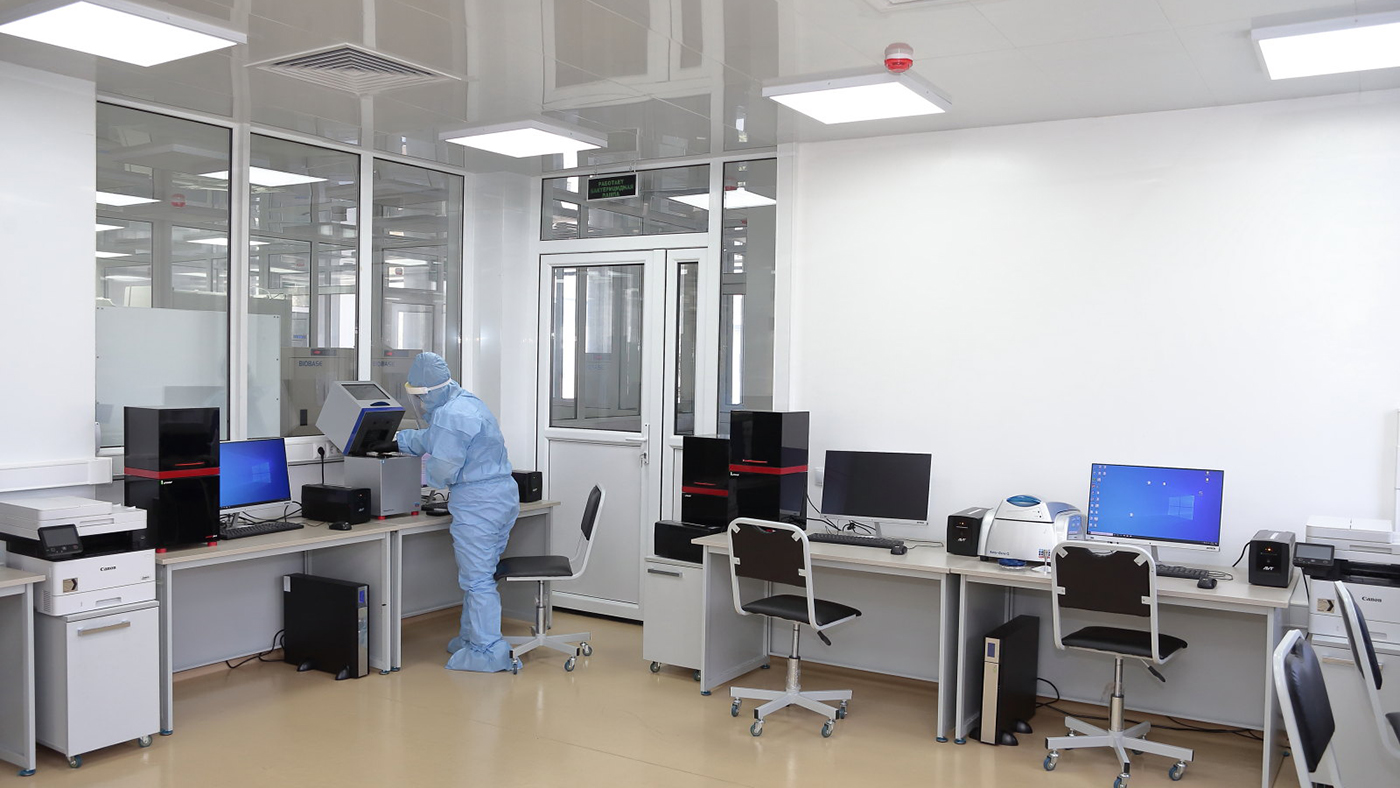
Laboratory technicians at the National Reference Laboratory for the Service for Sanitary and Epidemiological Wellbeing and Public Health (SSEWP) in Tashkent, Uzbekistan test samples for COVID-19 and other infectious diseases. US CDC and SSEWPH have a long history of collaboration, dating back to 2003 when CDC established its office in Uzbekistan. In April of 2020, CDC announced a pledge of $2 million to support the government of Uzbekistan in managing the ongoing COVID-19 outbreak. Photo by Sharakhmedov Hamdam/Golden Minds.
CDC’s long-standing partnerships and investments in supporting enhanced global surveillance systems, improving disease detection capacity, expanding adaptable laboratory networks, strengthening emergency management, and developing a well-trained workforce are cornerstones of the global pandemic response.
CDC has provided resources as well as technical support that is coordinated with other U.S. government agencies and international partners, including multilateral organizations.
CDC’s global goals during the COVID-19 response
When the pandemic started, CDC worked with local partners to support countries and communities at higher risk, while providing global public health leadership to help gather the information needed to improve the response. The goal was to stop the spread of COVID-19 while continuing to build global public health capacity to prevent, prepare for, and control future pandemics.
To do that, CDC helped countries open Emergency Operations Centers and staff them with outbreak investigators trained through the Field Epidemiology Training Program.
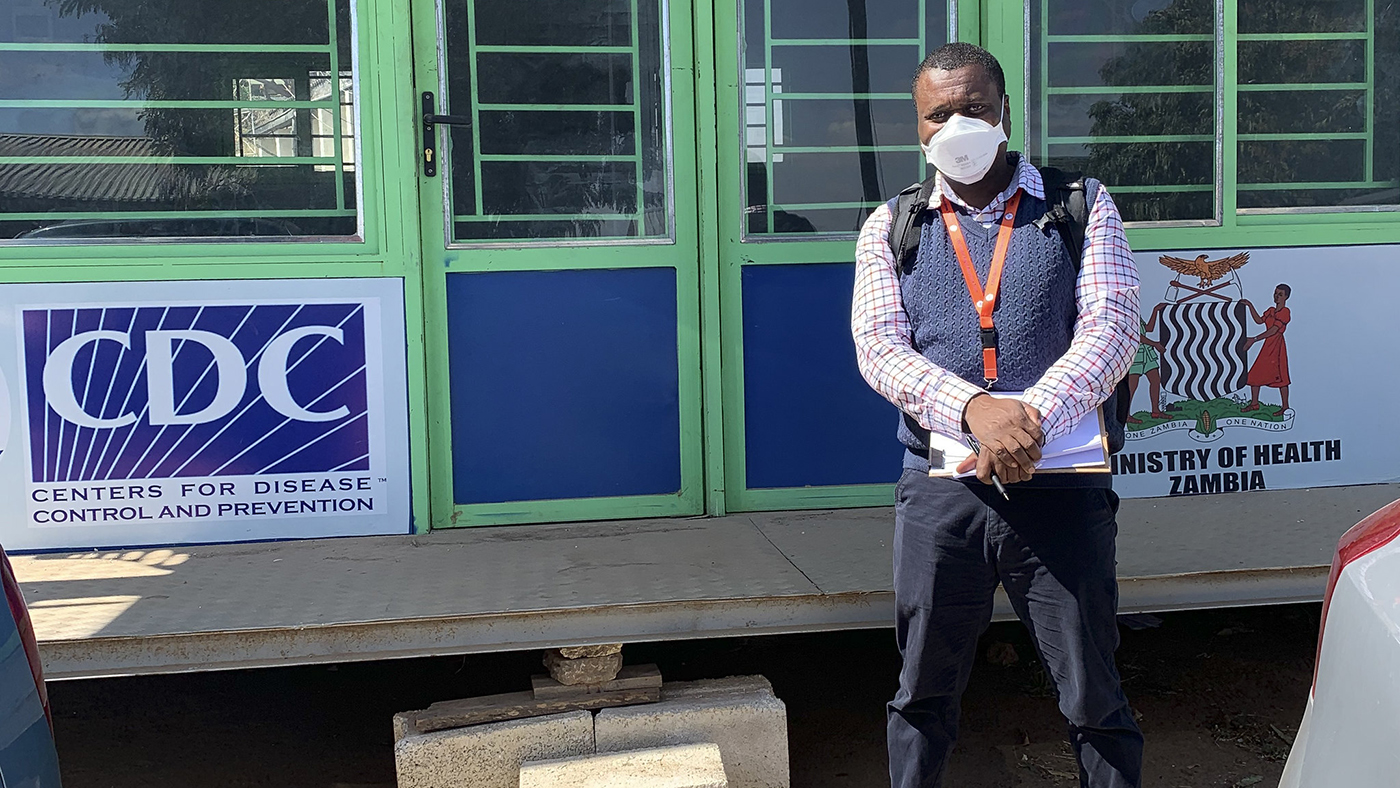
CDC’s Kerton Victory, PhD, is in Lusaka, Zambia, on June 17, 2021, where he worked with colleagues from Zambia’s Ministry of Health. They conducted a COVID-19 vaccine readiness site assessment at Matero Level 1 Hospital in Zambia’s capital. Photo by Champo Chola/Zambia Ministry of Health.
The CDC Strategy for Global Response to COVID-19 includes the following:
- Increase global access to safe and effective COVID-19 vaccines
- Reduce spread of COVID-19 and its impact in countries at higher risk
- Expand scientific knowledge of SARS-CoV-2, the virus that causes COVID-19, and strengthen global public health leadership; and
- Improve long-term health security in low- and middle-income countries.
Tracking and monitoring the emergence of new variants of SARS-CoV-2 is critical to reducing the spread of COVID-19. CDC has provided equipment and supplies along with training to conduct the laboratory and analytic work needed to detect and characterize strains of the virus.
CDC also collects, reports, and analyzes global data. CDC support for surveillance has been provided in more than 30 countries, greatly expanding the breadth and quality of surveillance systems outside the United States.
Examples of in-person and virtual training provided by CDC include the following:
- Helped to scale up COVID-19 diagnostics through national lab networks in 15 countries by providing training of trainers, supervision, and mentoring, to support compliance to new molecular testing practices, biosafety, and quality requirements.
- Conducted interactive training sessions about sequencing workflow with laboratories in Georgia, Kenya, and Zambia in fall 2021. Sessions were recorded for future reference.
- 53 people from labs in 18 countries attended a 7-week remote bioinformatics workshop hosted by the U.S. Association of Public Health Laboratories (APHL) in West Africa in March 2022.
CDC is part of Initiative for Global Vaccine Access (Global VAX)
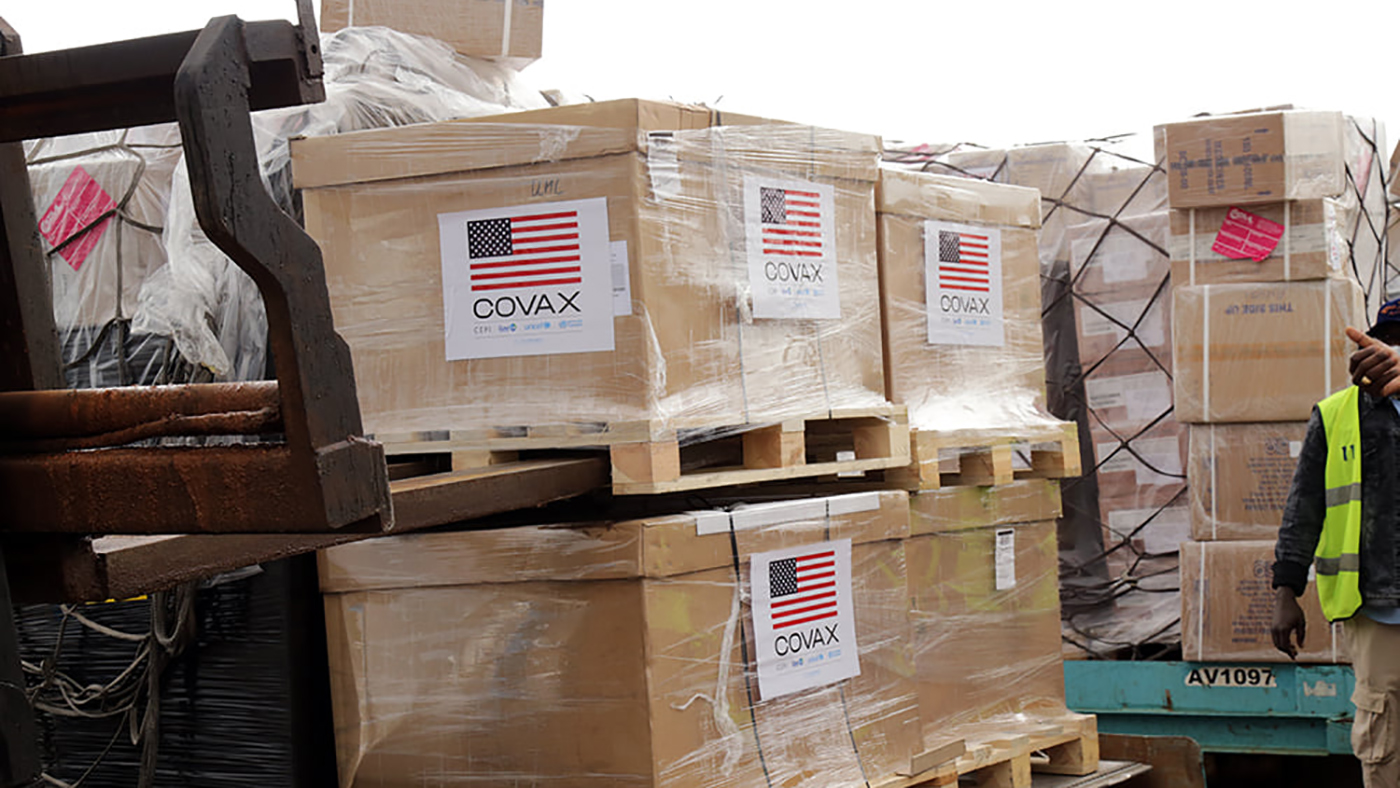
US CDC began planning for COVID-19 vaccine rollout in South Sudan in early 2021. As part of the plan, CDC led and supported the development of the District Health Information Software 2 (DHIS-2) COVID-19 vaccine module with InterHealth International and the Ministry of Health. Vaccine introduction in South Sudan was successfully launched in October 2021 and data for people who were vaccinated was captured immediately into the COVAC DHIS2 vaccine module.
As vaccines became available, the goals expanded to focus on vaccines. CDC is committed to accelerating global access to safe and effective COVID-19 vaccines. CDC is part of the Initiative for Global Vaccine Access (Global VAX), a U.S. government effort to get more people around the world vaccinated against the virus that causes COVID-19. As of March 3, 2022, the United States has donated more than 480 million COVID-19 vaccine doses to 110 countries.
Before vaccines arrived in countries, CDC experts met with health officials and created country-specific plans to receive and distribute vaccines, evaluate programs, and monitor safety. This helped ensure readiness to implement and evaluate vaccination programs and use treatments when available.
CDC’s work through Global VAX strengthens countries’ capacity to plan for and deliver COVID-19 vaccines while building long-term, sustainable capacity for immunization programs and response to infectious disease threats. Around the world, CDC is supporting countries in building demand for COVID-19 vaccines.
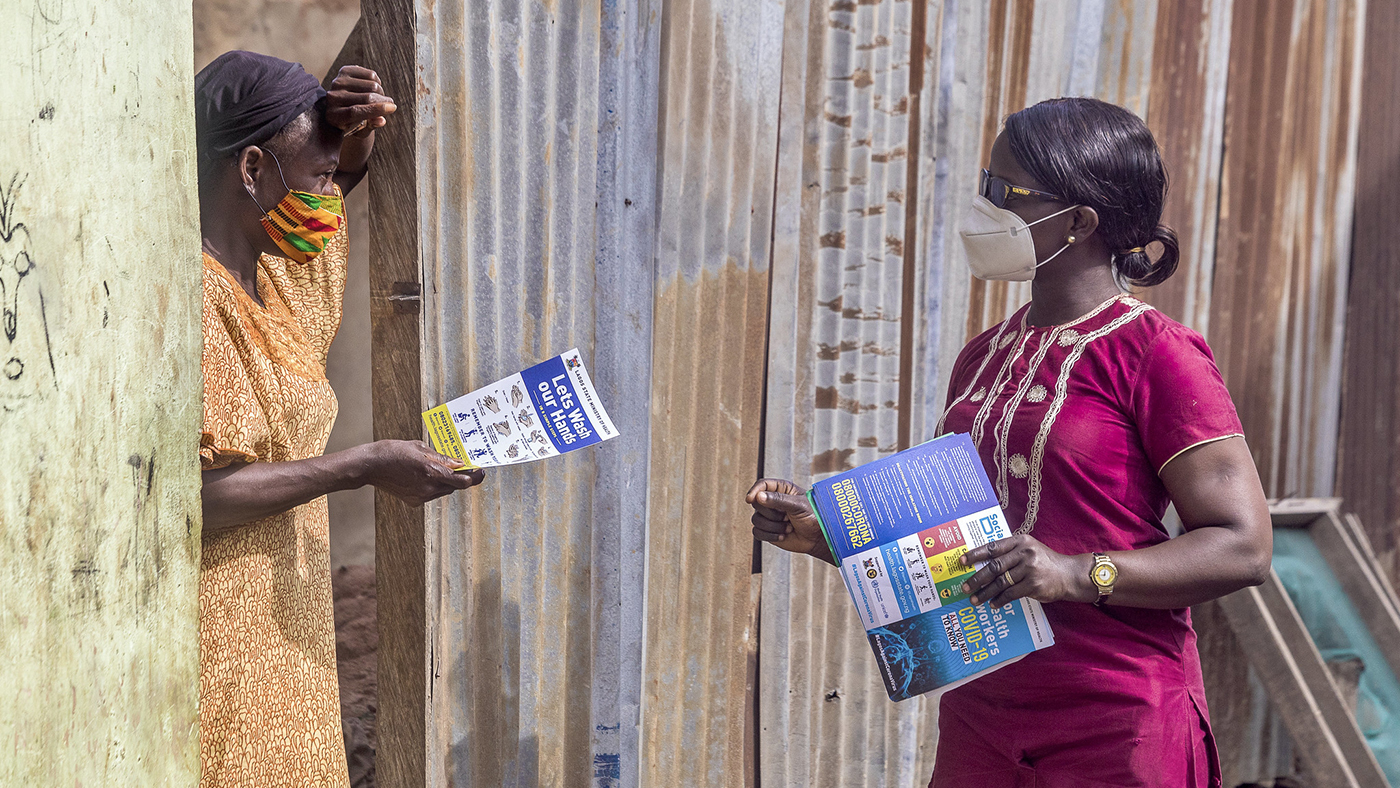
A volunteer hands out handbills as part of campaign to raise awareness about COVID-19 and explain what people need to do to limit the spread of the disease. The CDC country office in Nigeria trained volunteers to share accurate information about COVID-19 in their communities. Photo by Nigeria Centre for Disease Control.
CDC provides countries with technical assistance to conduct surveys and studies to understand the local knowledge, attitudes, and beliefs about COVID-19 vaccines in different sub-populations.
Examples of this technical assistance provided by CDC include the following:
- In Uganda, CDC and its partners collaborated to support COVID-19 vaccination uptake in priority groups and strengthen vaccine data management and monitoring. In addition, CDC experts worked with a local television broadcast network to emphasize the critical importance for people living with HIV to get vaccinated against COVID-19.
- In Belize, CDC helped the Ministry of Health and Wellness increase the number of trained staff who could administer COVID-19 vaccines. This proved to be instrumental in Belize’s success in vaccinating 50.4% of the eligible population against COVID-19 by late 2021.
- In Mali, CDC, in partnership with local organizations, helped the Ministry of Health train more than 800 healthcare workers involved in COVID-19 vaccination activities across the country.
- In Nigeria, CDC recruited and trained religious leaders to educate more communities about COVID-19 risks and vaccine confidence.
- In Thailand, CDC provided technical assistance to support genetic sequencing efforts of SARS-CoV-2.
- In multiple countries, including South Africa, Tanzania, Uganda, Zambia, and Haiti, CDC has leveraged longstanding relationships with PEPFAR clinical partners to support COVID-19 vaccine administration efforts.
- In Cameroon, CDC trained more than 800 graduates of the CDC-established Field Epidemiology Training Program to collect, analyze, and interpret data that contributes to evidence-based public health decisions.
As we begin year three of the COVID-19 pandemic, the public is weary and longs for a return to normal. From New York, USA, to Addis Ababa, Ethiopia, people are ready to move forward. CDC staff and global partners worldwide will continue working round-the-clock with the goal of ending the COVID-19 pandemic and preparing for the next outbreak or emergency.